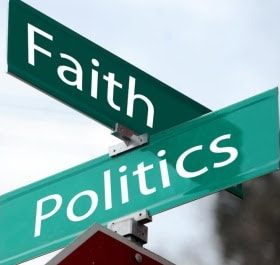|
(This article was first published in Dutch by the Belgian Magazine Knack on July 10, 2021) Dyab Abou Jahjah The debate on Ihsane Haouach in recent weeks has been much more meaningful than many think. I do not want to analyse the grounds that led to her sacking here. What I do want to do is explain what woke Islamism is and how it manifests itself in Europe. Let me be clear about one thing. When we talk about Islamists, there are many variations, and in the Arab world democrats have to remain in dialogue with the most moderate versions in the hope that one day they will evolve into some kind of Muslim democrats. This seems to be the case, for example, with the Tunisian branch of the Muslim Brotherhood, the Annahda Party, which lost the elections and transferred power peacefully. But here in Europe we are beyond that. Europe cannot be complacent with a movement that wants to place the sovereignty of the people under the umbrella of divine law. No matter what demographic changes are taking place. And yet the Haouach case revealed a serious deficiency in the debate about the presence of Islam in Europe and about what constitutes "Islamism". This deficiency must be situated within the space between the narrative of "Islamisation, great replacement or repopulation" on the one hand and that of "there is nothing wrong, except racism and Islamophobia" on the other.
The flaw in both logics is that they are oversimplifications that turn 'Islam' and 'Muslims' into a monolithic thing. The first camp sees 'Islam' as an ideology of conquest and 'Muslims' as agents of that ideology, the second camp sees 'Islam' as a religion of peace and 'Muslims' as a community of victims of Islamophobia. Islam, like any religion, is a house with many chambers. It is therefore misleading to speak in such general terms, whether positive or negative. At the same time, we must emphasise that there is a political movement that sees in Islam not only a religion - a combination of ritual, moral and spiritual guidelines - but also a political blueprint for society. We call this movement political Islam or Islamism. Islamism itself is a general term that includes rival factions of every Islamic orientation. However, the common denominator is that all Islamists agree that the ultimate goal of politics would be to rule according to the divine principles revealed by God in the Koran. Some Islamists want to apply these principles literally, others interpret them according to time and context. Islamism, like all Islamic tendencies, is present among European Muslims. I identify mainly two types of Islamists in Europe. The first type is often found among first or second generation Muslims. They are focused on the Arab and Islamic world. They see themselves as a diaspora. In Europe, they are often apolitical or only interested in being able to practise their religious rites and develop their activities in relation to their country of origin. They include the Muslim Brotherhood, but also the supporters of the AKP of Turkish President Recep Tayyip Erdoğan, the Gülenists, supporters of Hezbollah, the supporters of "Adl wal Ihssane" and dozens of other movements. The second group are Islamists who are invested in European politics. They are often Muslims of the late second or third generation. They belong to the same Islamist families, but have less affinity with their country of origin and more affinity with Europe. And even though they sympathise with the cause of their brothers in the countries of origin, their political outlook is inward and not outward. Their struggle is often limited to creating as much space as possible for Islam and Muslims in Europe. Today, most of them are part of a large network of "activists" and active people who bring them into contact with ultra-progressive circles open to their discourse on reasonable accommodation and "being themselves". If they have the necessary intellectual depth, they usually articulate their Islamism as a decolonial and emancipatory narrative, contesting modernity through a postmodern lens. This synergy between Islamism and extreme progressivism can be called "woke Islamism". It has been a growing trend in recent years. Woke Islamists can now be found in left-wing and progressive political parties in Flanders and Brussels. Within the ranks of these parties, they are part of the most radical progressive wing. Let me now be clear about one thing. It is better that a large proportion of Islamists now embrace ultra-progressive politics than that they embrace jihadist fascism. Nevertheless, the attack on modernity and most of its values, including secularism, is being carried out in a more sophisticated and efficient manner and within a broad alliance with serious mobilisation potential. This strategy is not aimed at creating an Islamic state, but may lead to a fragmentation of society along identity lines, so that everyone can "be themselves". This new woke Islamism dreams, along with the rest of the extreme progressive movement (often called "woke"), of an archipelago of "safe spaces" that interact with justice and equity. It is in this colourful and beautiful utopian painting of society that the toxic nature of European Islamism today resides. Together with the other woke currents, the woke neo-Islamists deconstruct 'universalism' in favour of the 'intersectionality' of exceptions. Thus, one day, all exceptions may eventually become the rule. When exceptionalism, not universalism, becomes the cornerstone of citizenship, who will dare to challenge the call for separate courts and even separate laws?
0 Comments
Your comment will be posted after it is approved.
Leave a Reply. |

 RSS Feed
RSS Feed